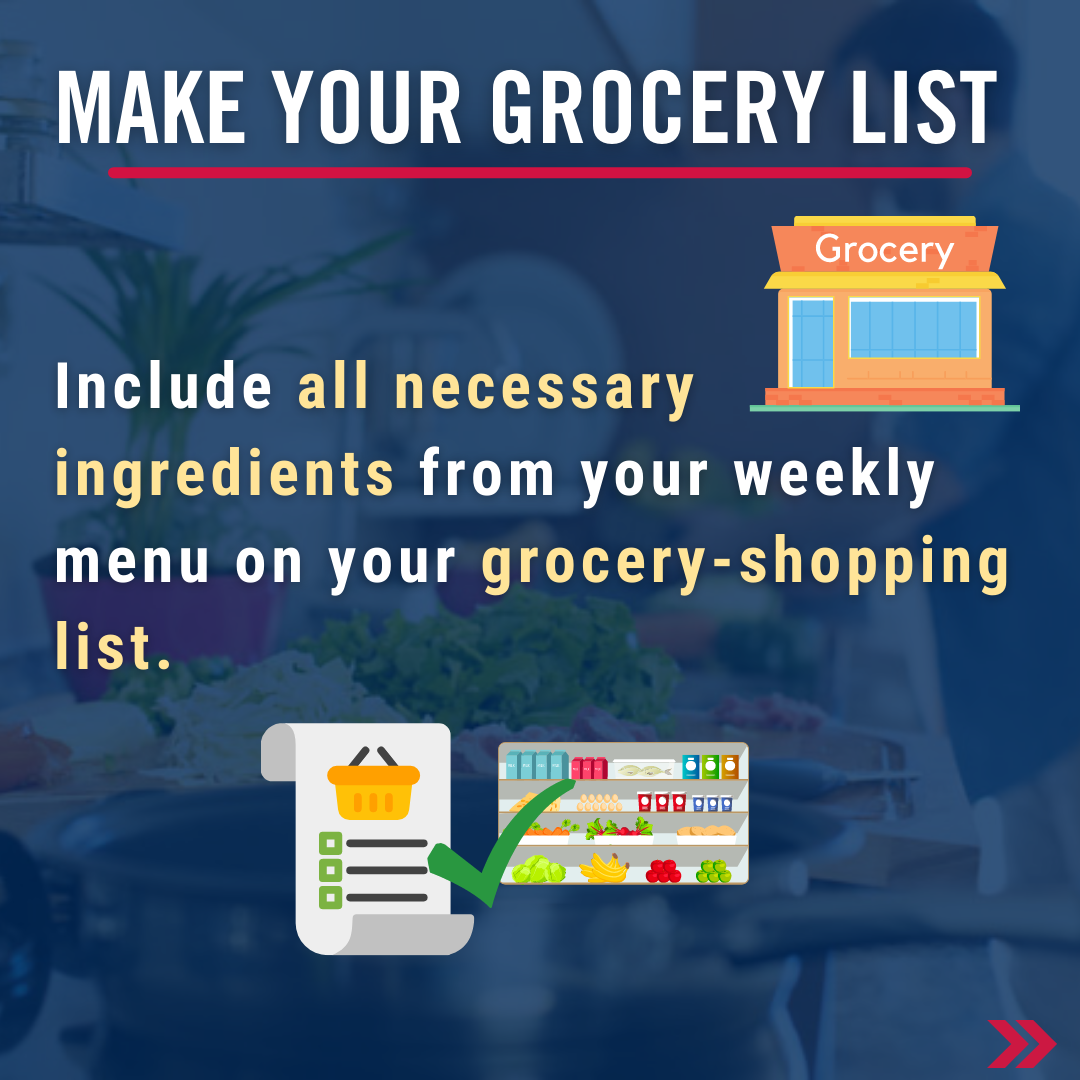Understanding barriers to nutrition
Most people don’t need more nutrition education but rather a better understanding of the barriers that hold them back from changing their eating habits. Identifying what barriers have stopped you from changing your current eating habits and what barriers may hold you back in the future – and having a plan to help you overcome them – will guide your plan of attack moving forward!
Remember that sustainable change should happen along a continuum. What’s one small change you can make today that will make a positive impact on your journey? Strive for progress not perfection.
HERE ARE SOME tips for you to start implementing today!
Affordability
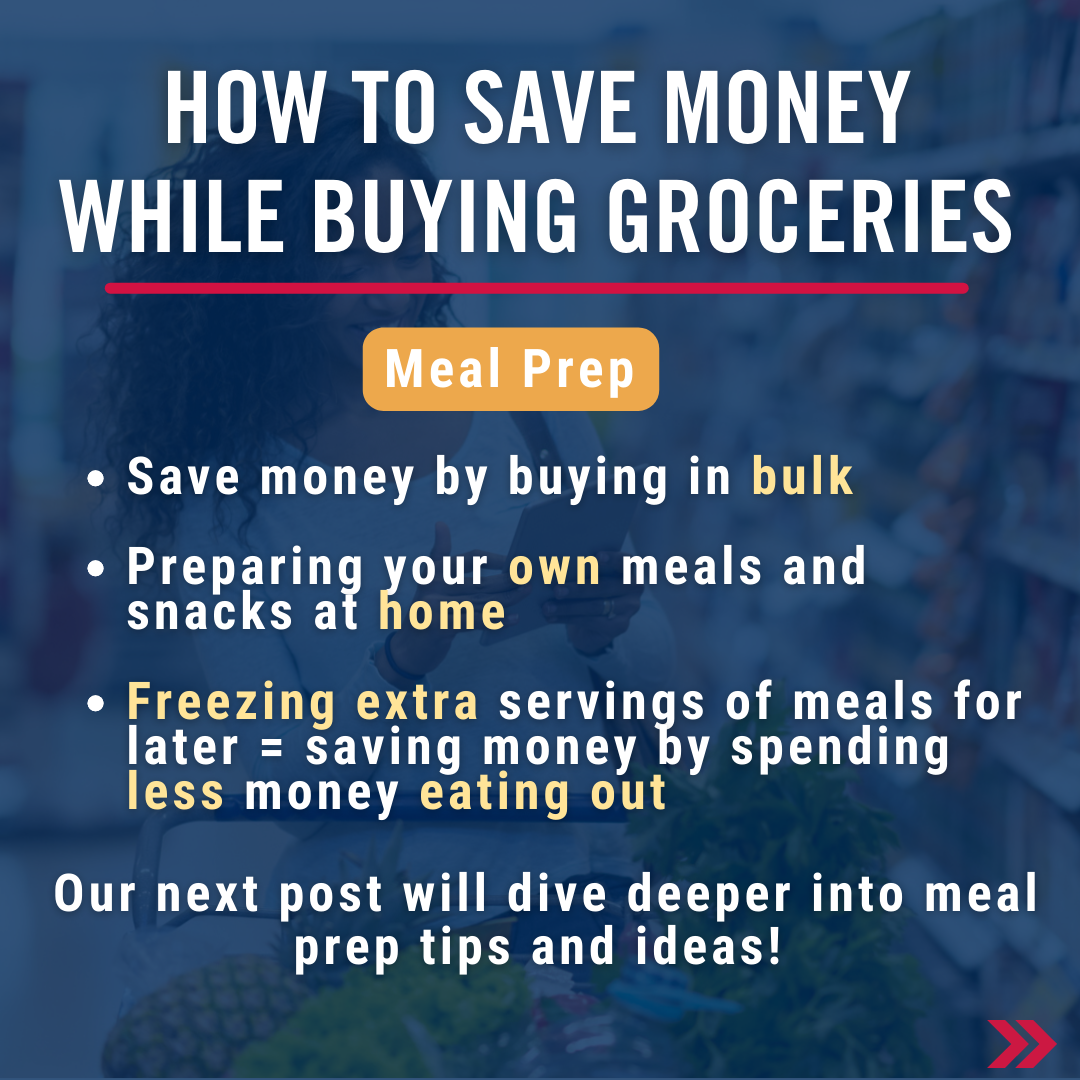 |
Buy in BULK. Many foods are available in bulk as a much lower price. They keep for a long time in airtight containers and can be used in a variety of nutritious, inexpensive dishes.
Buy frozen fruits & veggies. Frozen fruits & veggies are usually just as nutritious as their fresh counterparts. They’re available all year round, sold in large bags, and are typically packaged at the height of their freshness.
Try replacing meat 1-2 times/week with other proteins such as legumes, beans, eggs, or canned fish. These are all cheaper alternatives to meat and are nutritious sources of protein. |
 |
Stock up when there are sales on common staples and favorite products.
Buy produce that’s in season. In-season produce is typically cheaper and more nutritious. Try to buy produce on sale and freeze the left overs before they go bad. Incorporate frozen produce into future meals & snacks.
Buy generic & in-house brands. Most stores offer generic and in-house brands at a fraction of the price of brand named items. These are often of the same quality as more expensive national brands. |
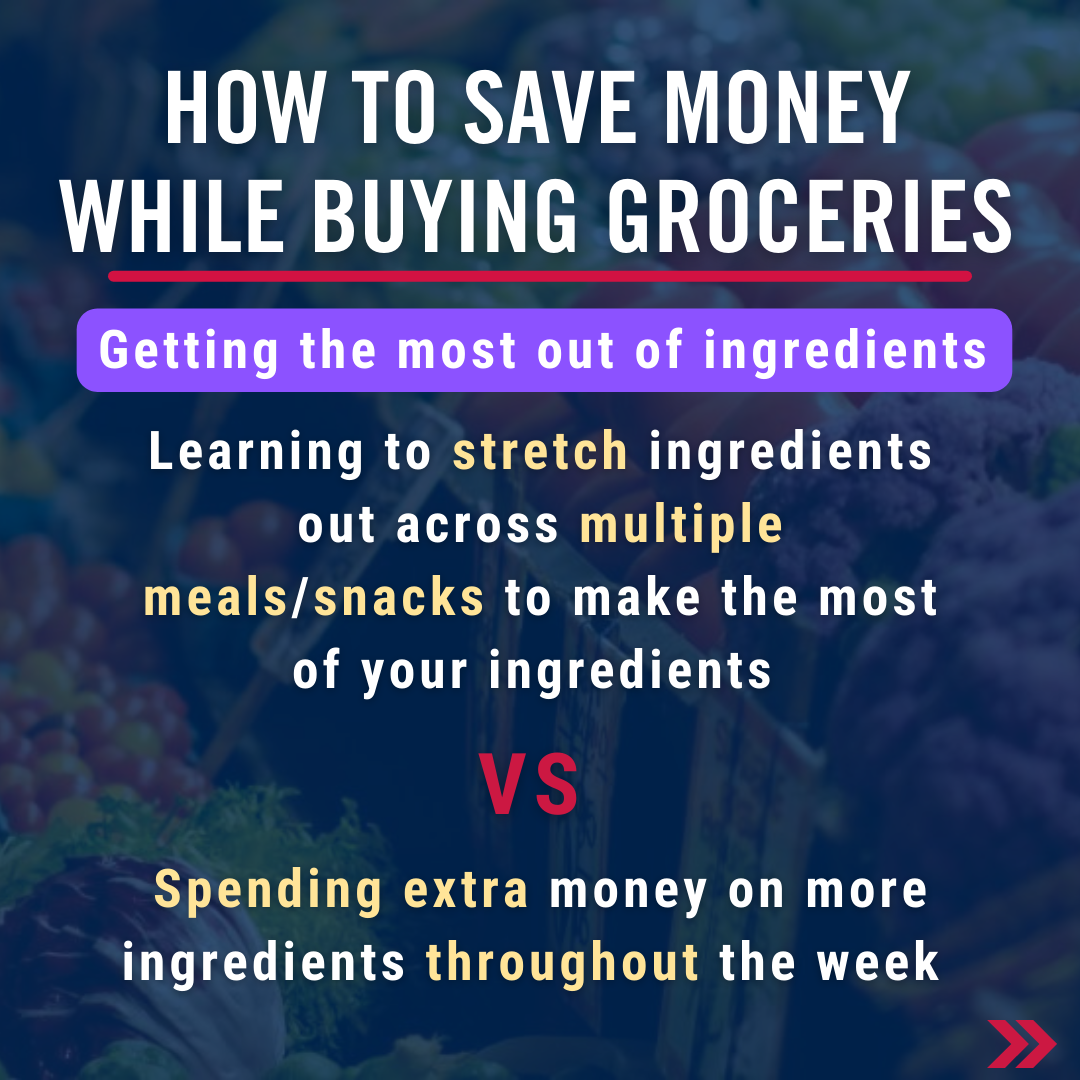 |
Plan your meals for the week and make a grocery list. Only buy what you’re sure you will use after making your weekly menu, and check out what you already have in your fridge & panty before going shopping.
Don’t shop when you’re hungry! Shopping while hungry can lead to impulse buying of things you don’t need and most likely won’t make you feel the greatest. If you’re hungry, have a nutrient rich whole food snack before going grocery shopping.
You don’t need to buy everything organic. Incorporating more inexpensive yet nutrient-rich foods into your daily routine will help you save money and eat well. Refer to the Clean 15 & Dirty Dozen to found out which foods are recommended to eat organic vs. non-organic. |
 |
Time to prepare & eat healthy foods
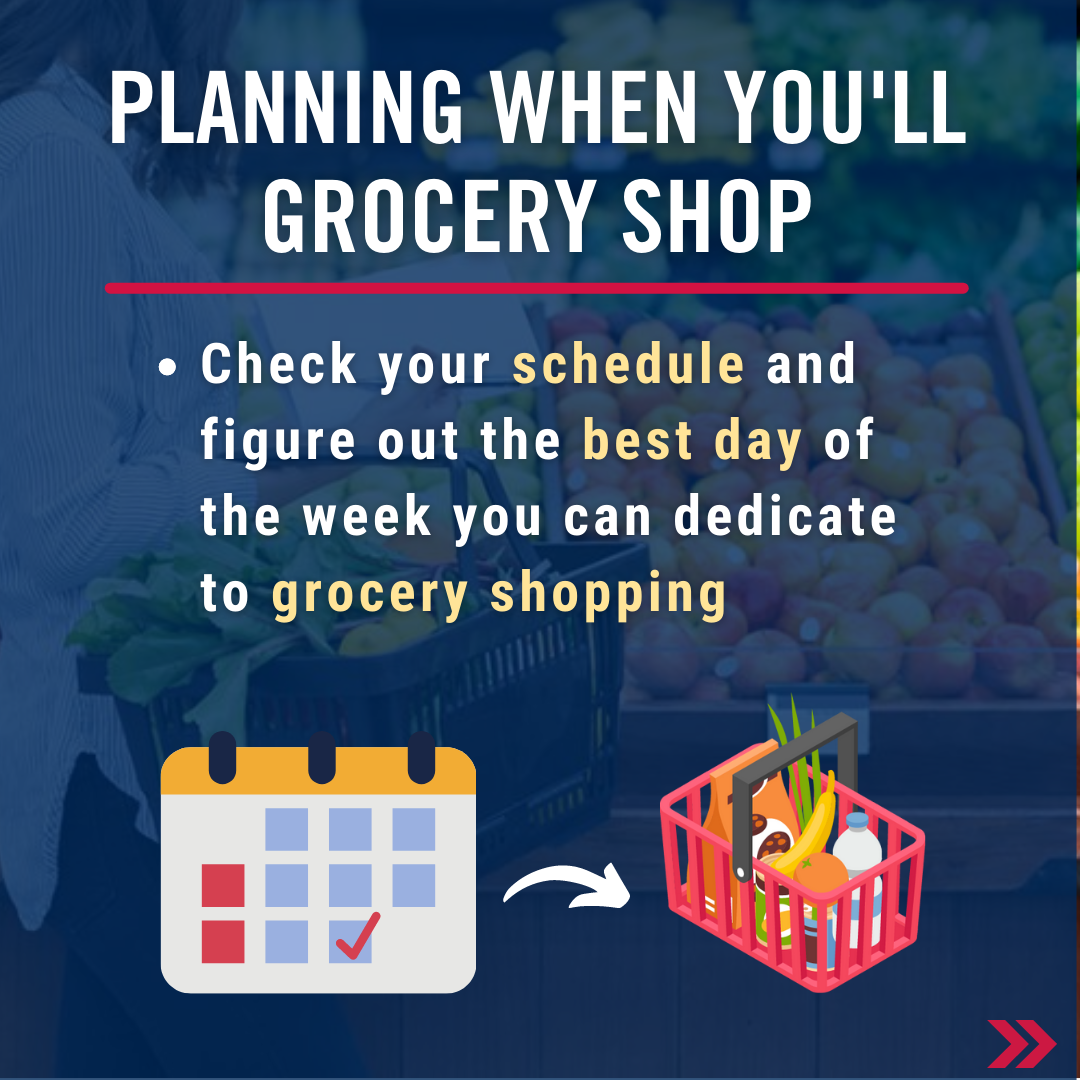 |
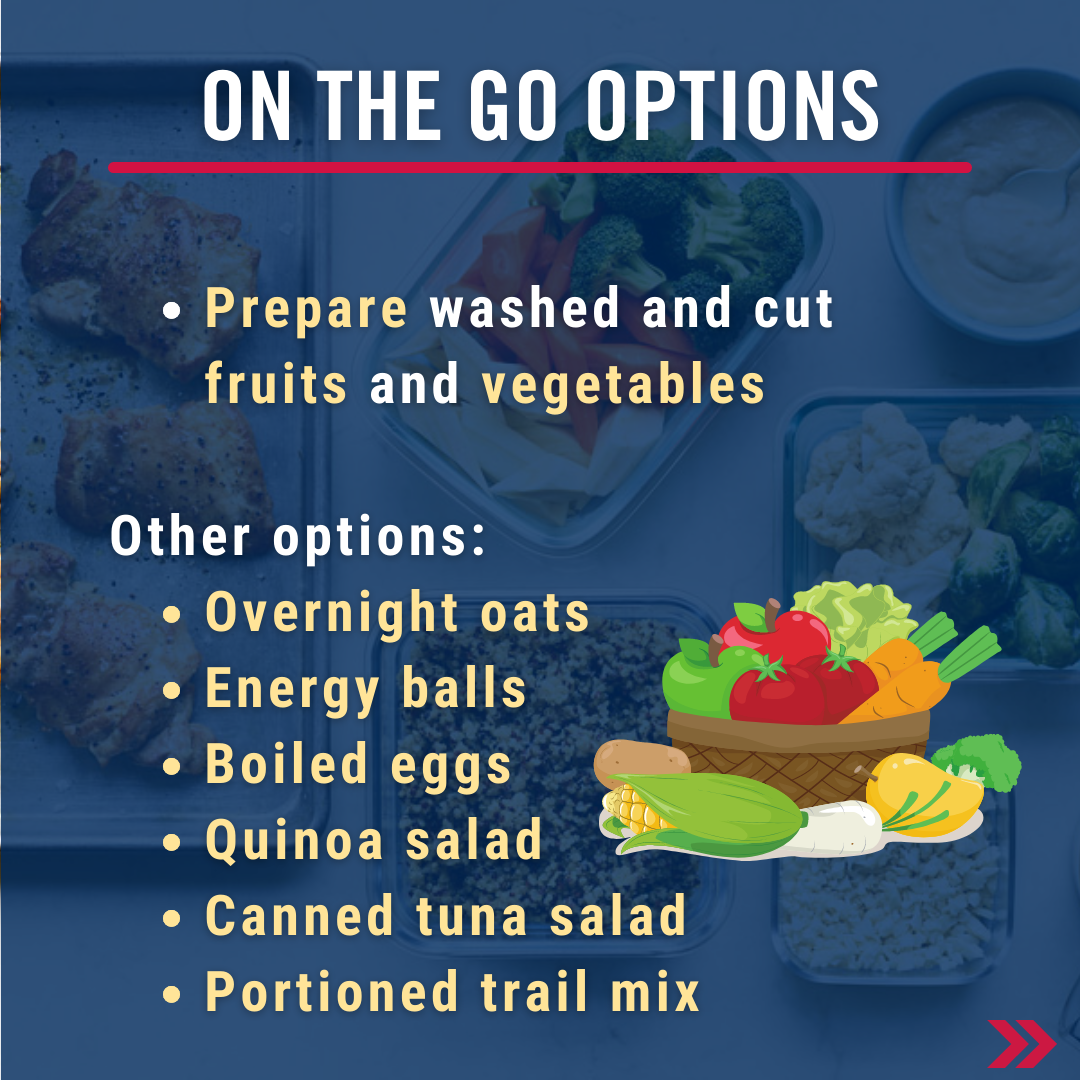 |
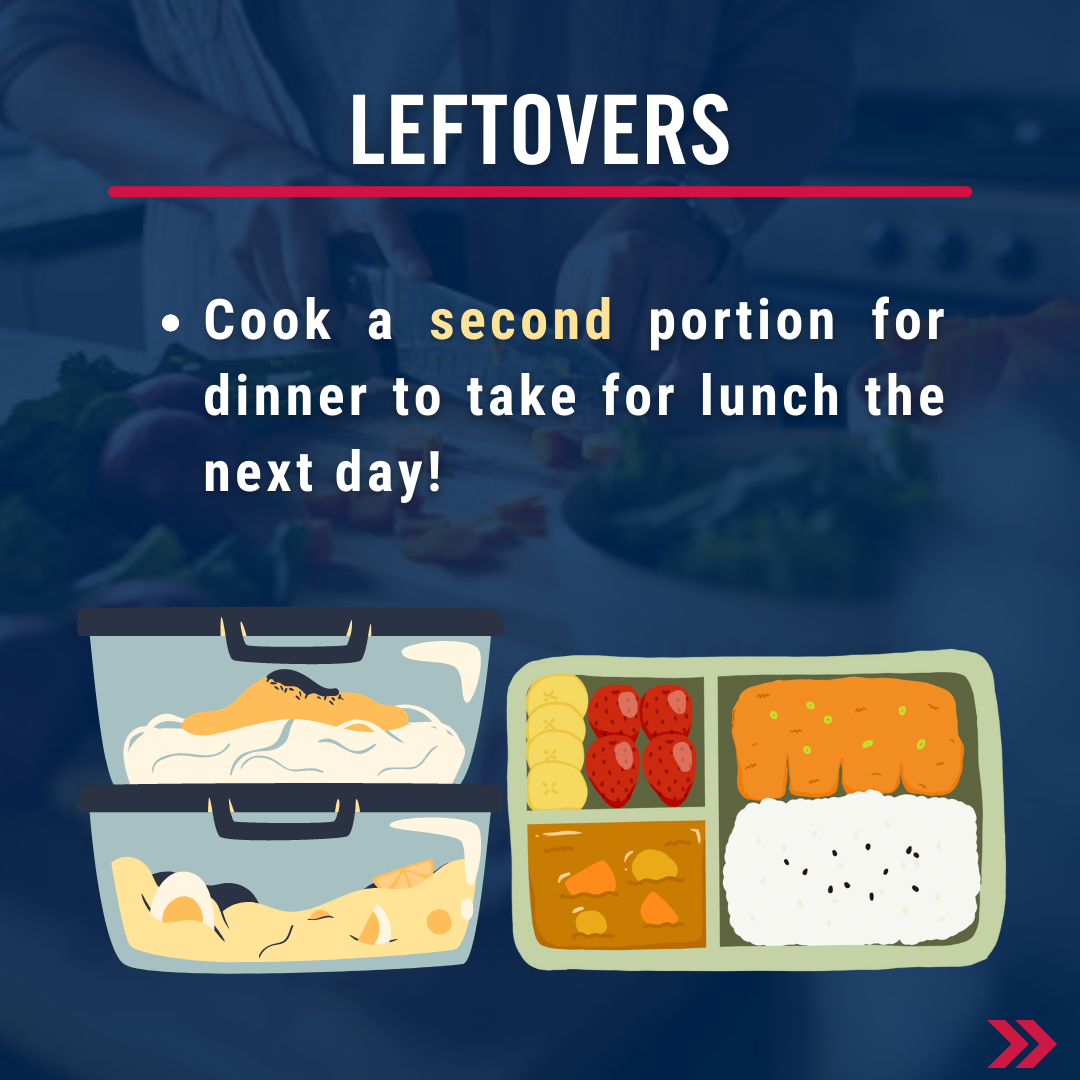 |
Think of meal prep on a continuum.
If you can make just one extra meal, or pack 1 extra snack, you’ll be taking a positive action to change your behavior and improve your health & performance. |
 |
 |
Accessibility
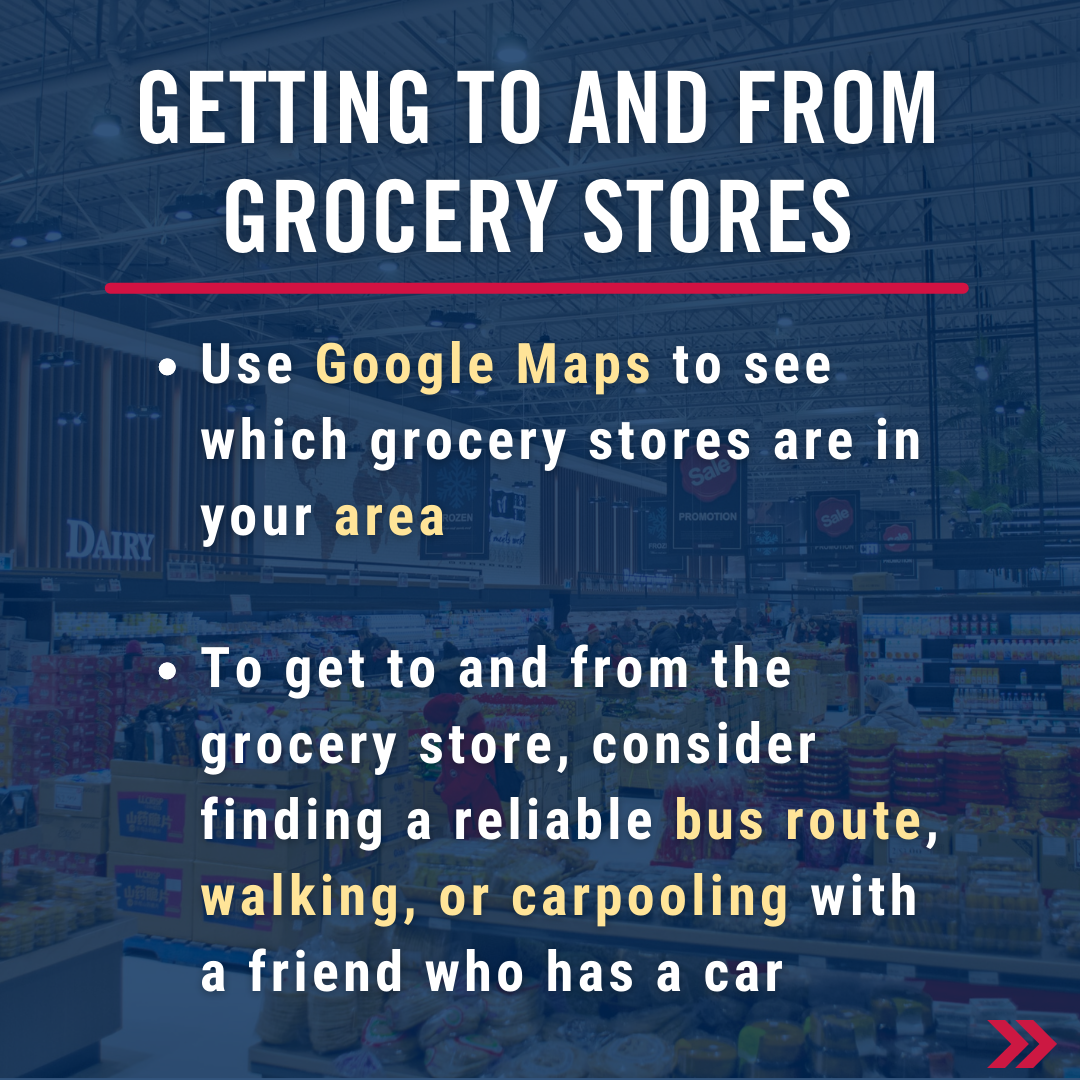 |
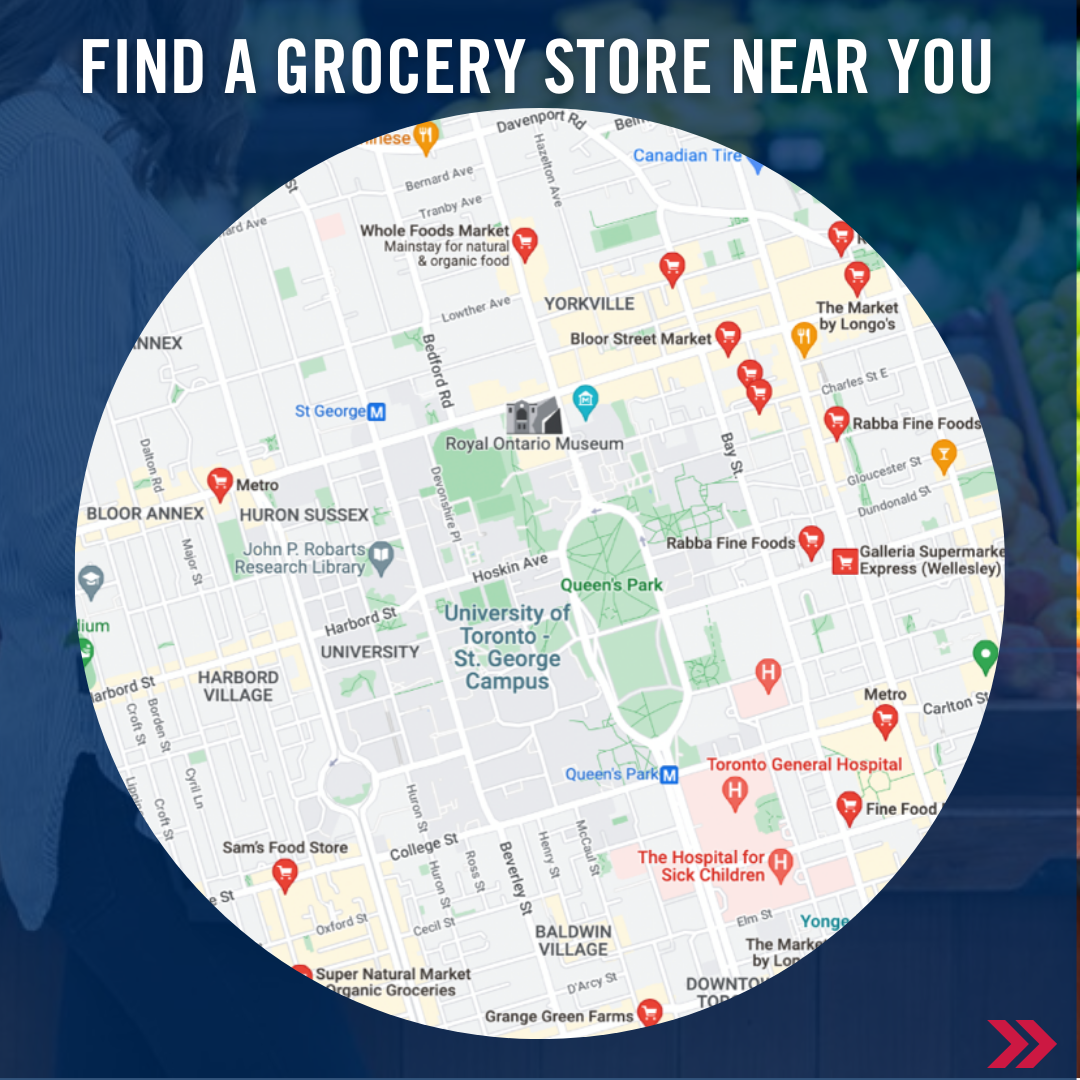 |
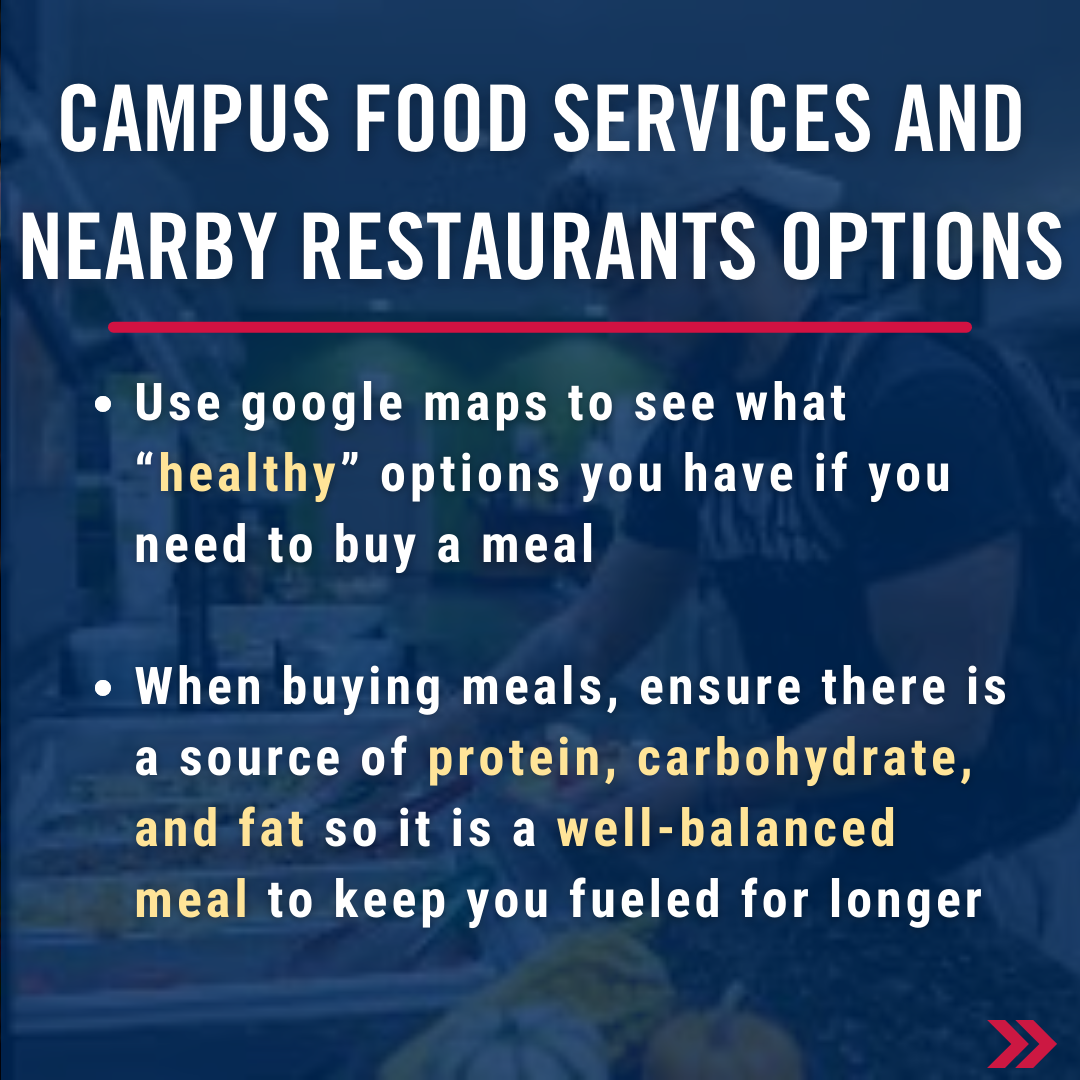 |
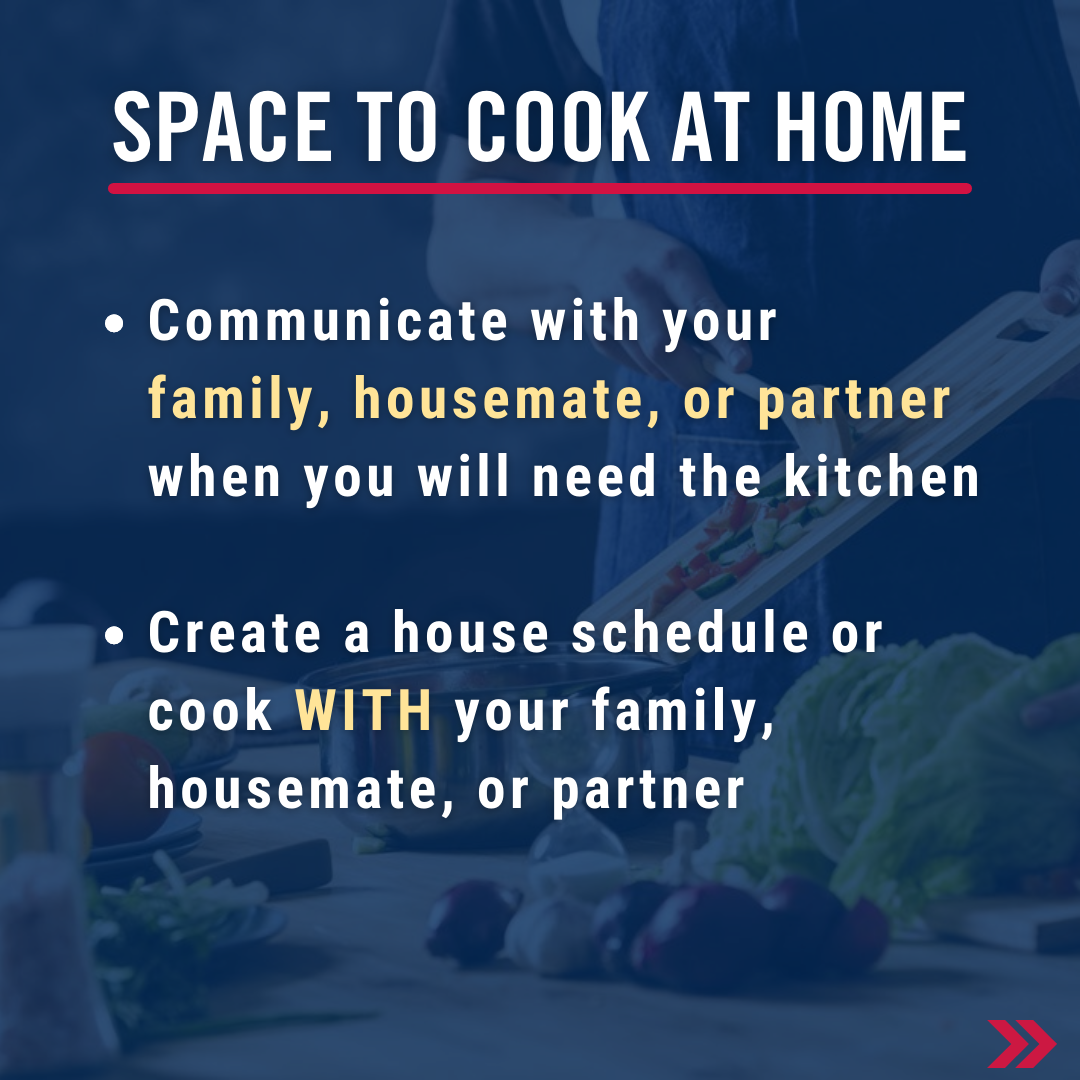 |
 |
Skills to plan & shop for meals
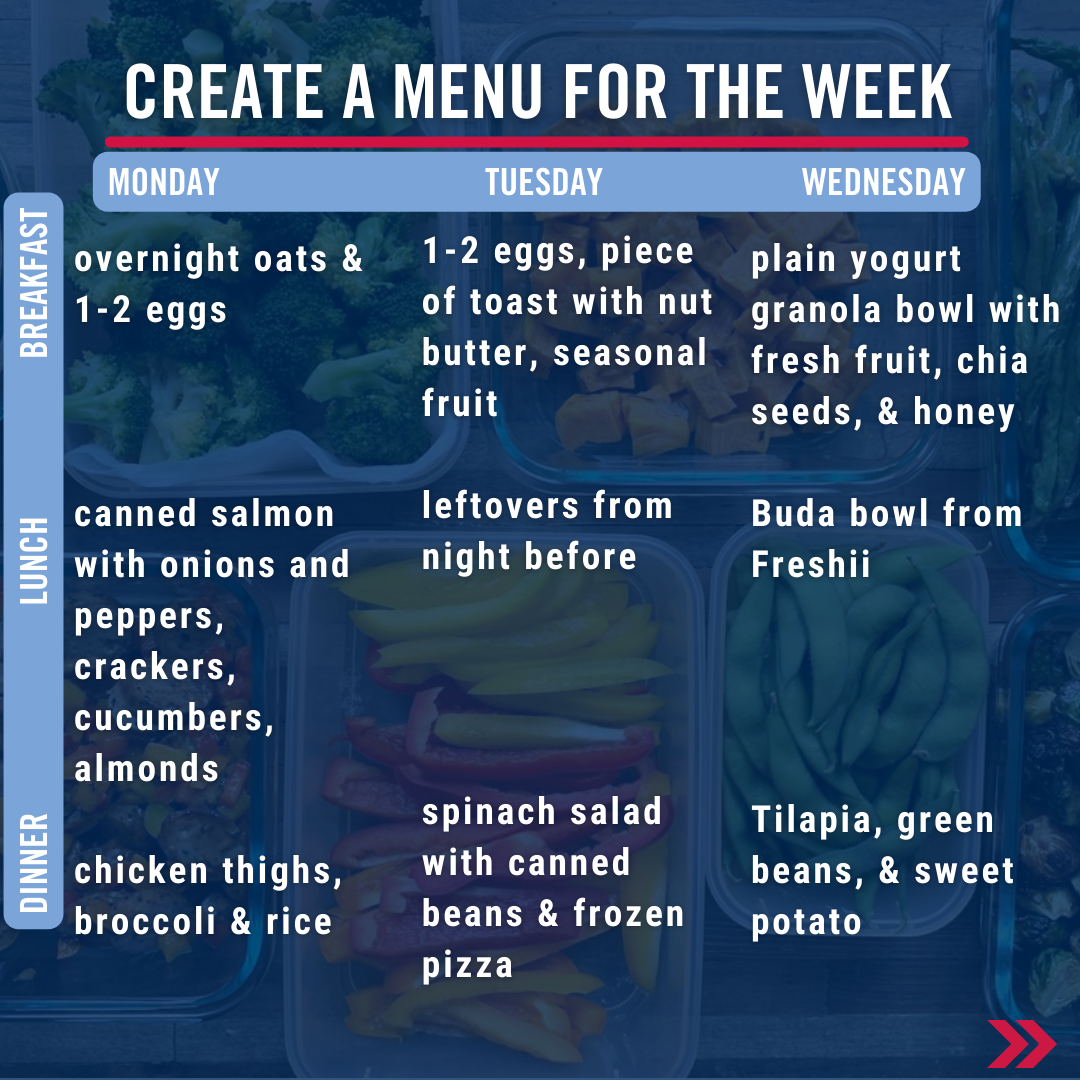 |
Start each week by create a weekly menu! |
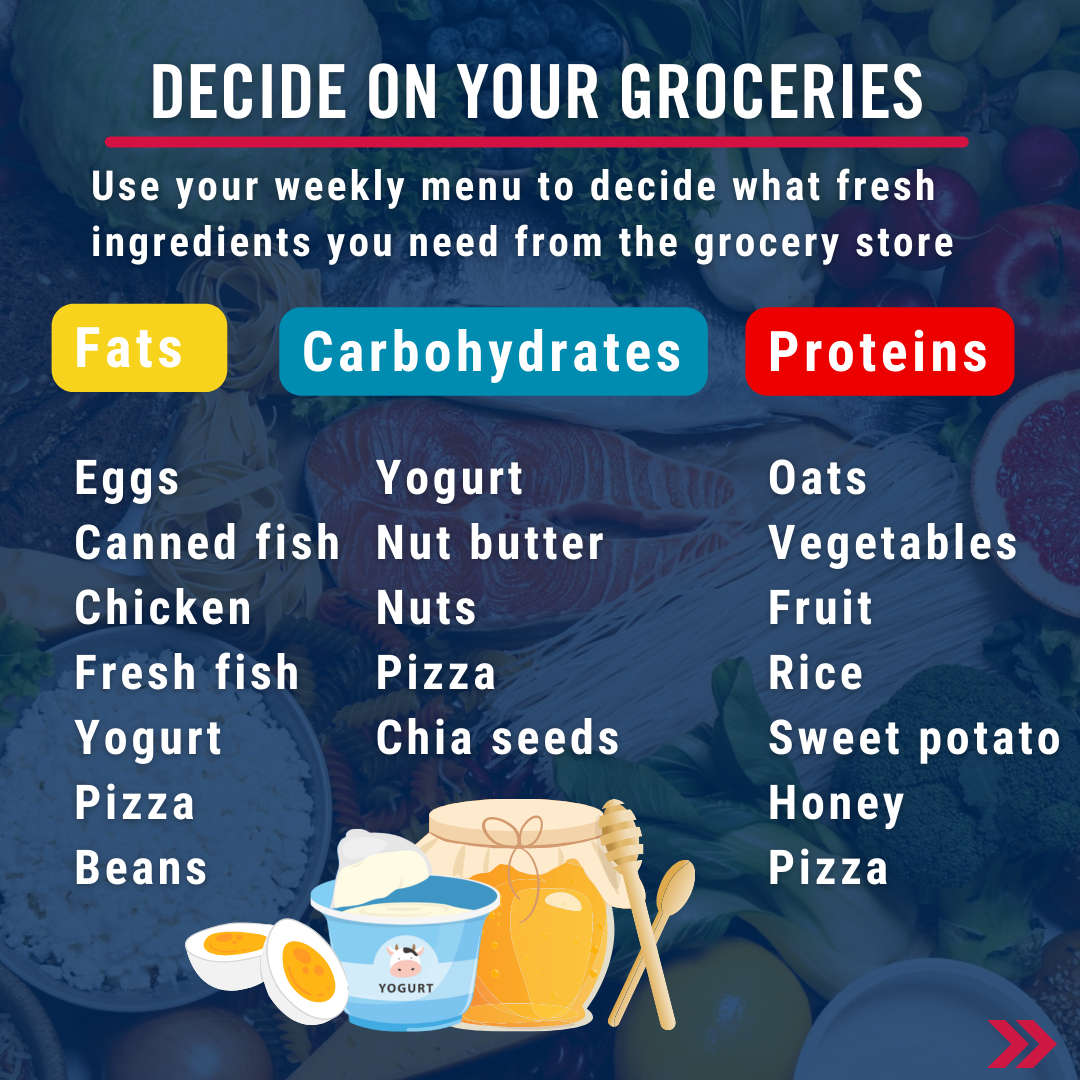 |
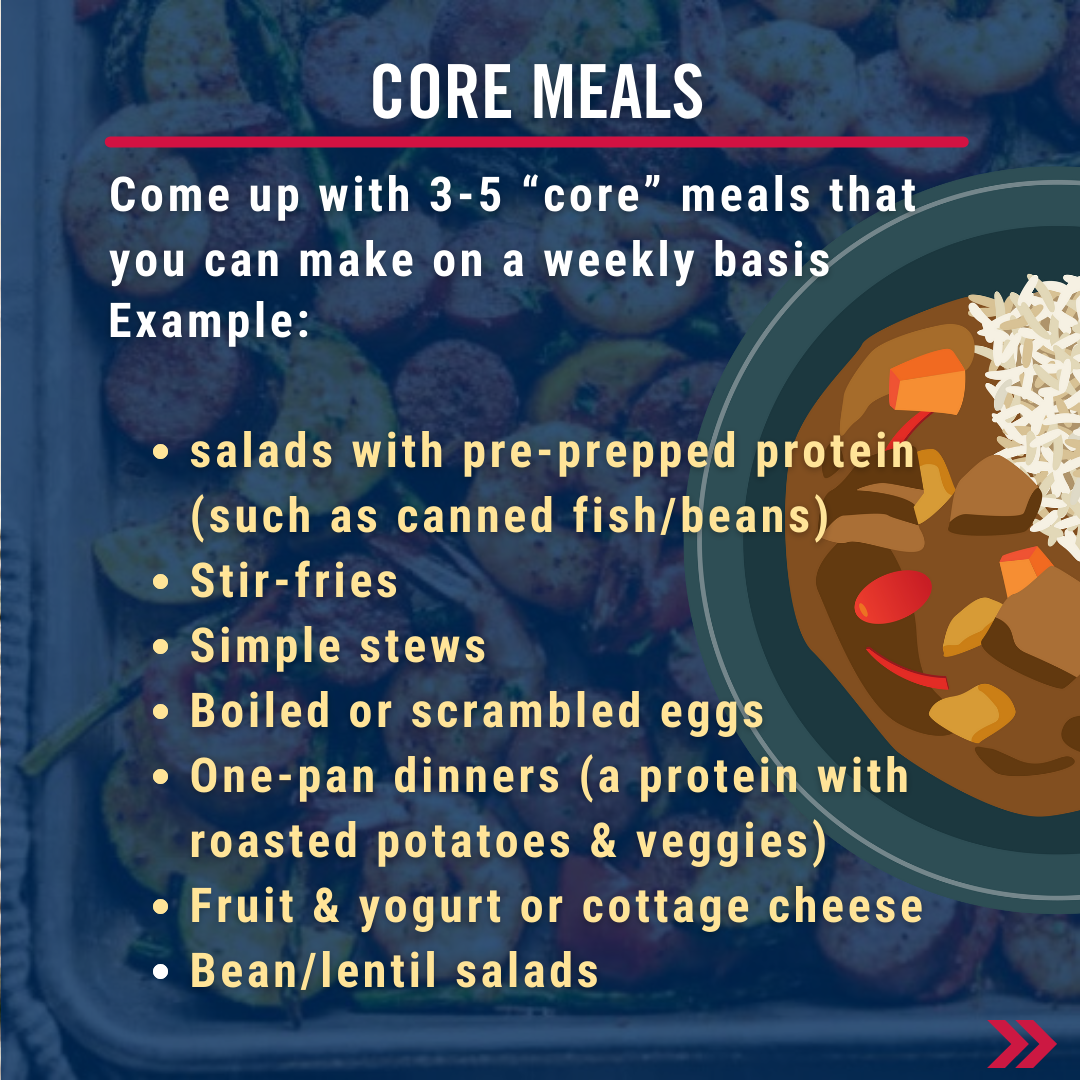 |
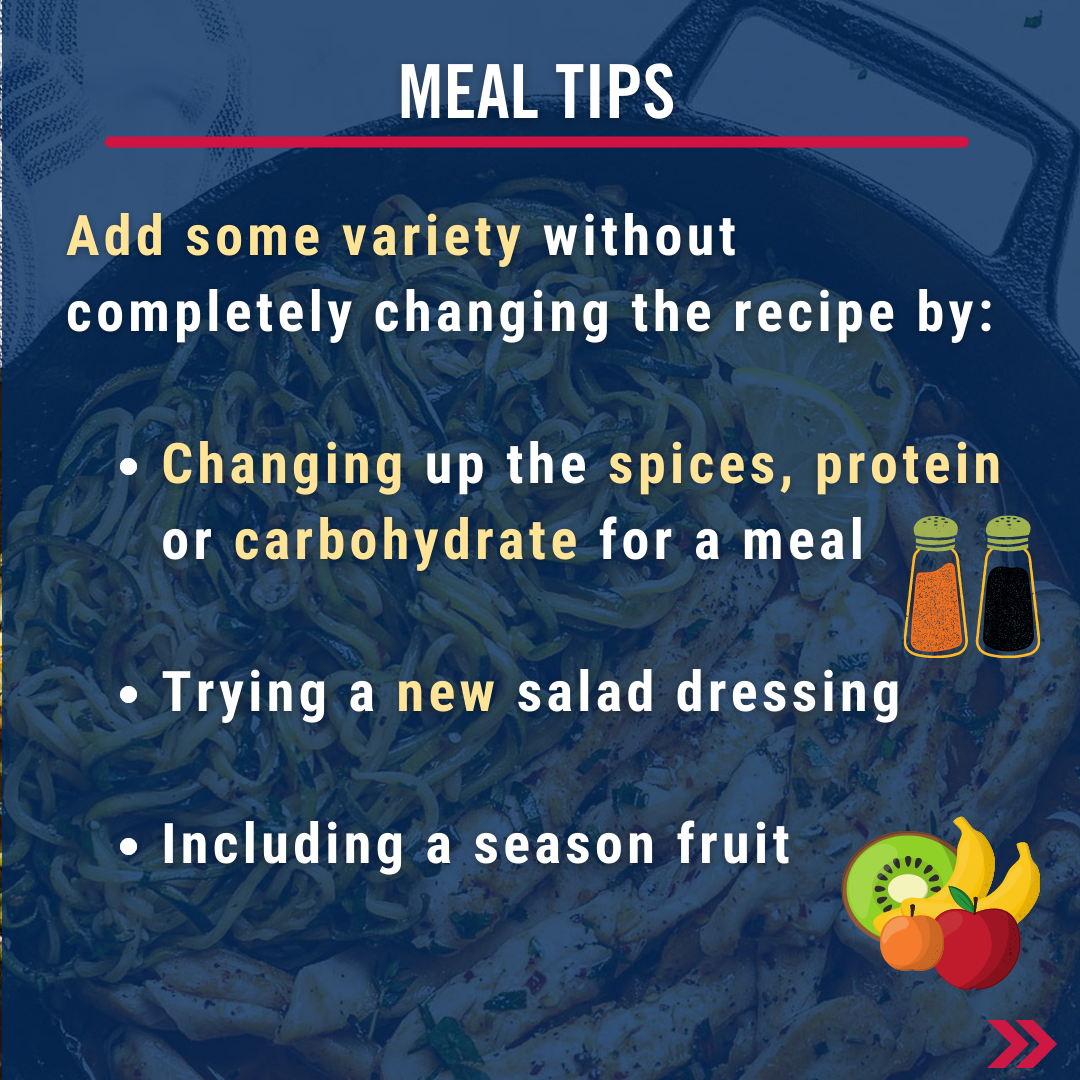 |
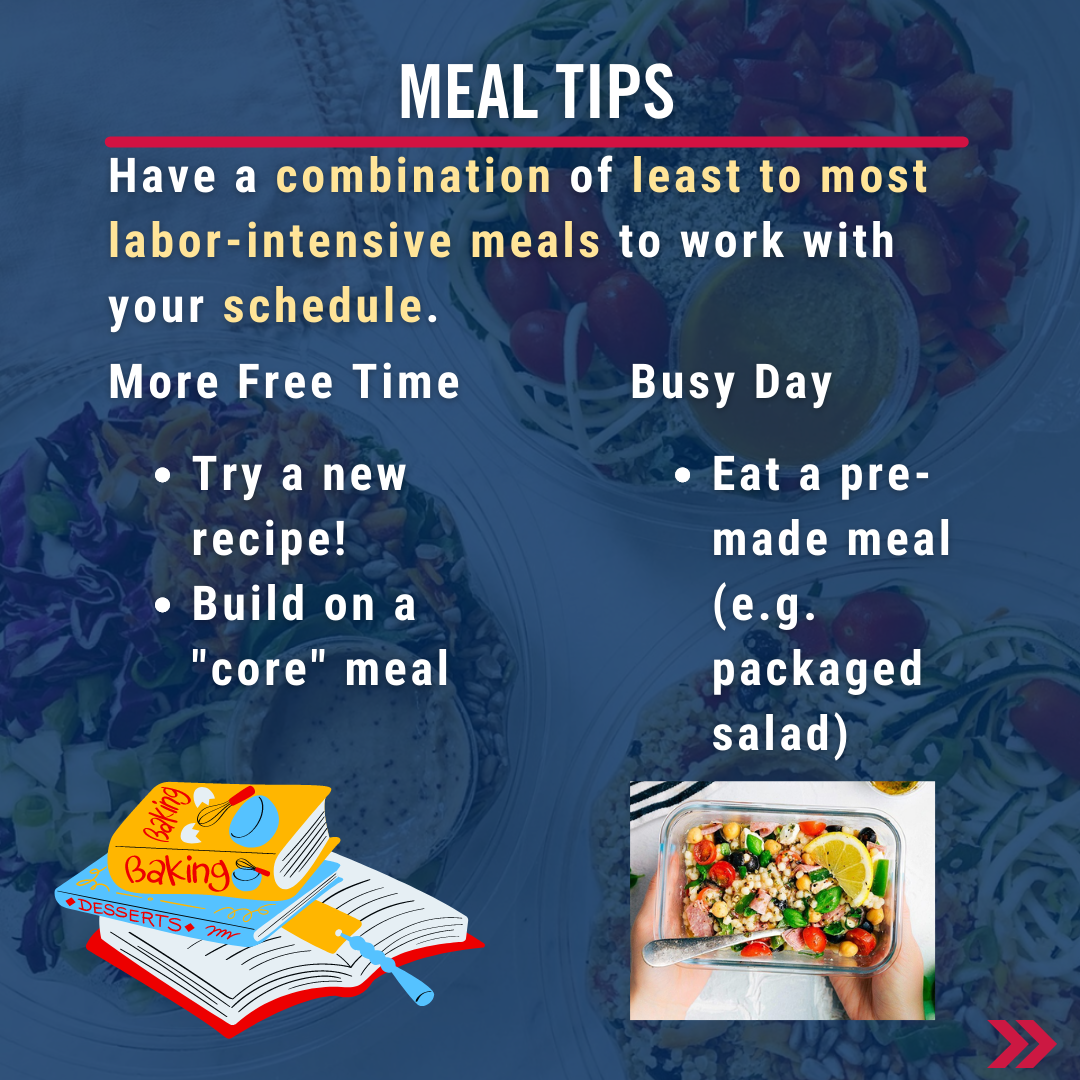 |
 |
 |
Skills to prepare & cook healthy foods
 |
|
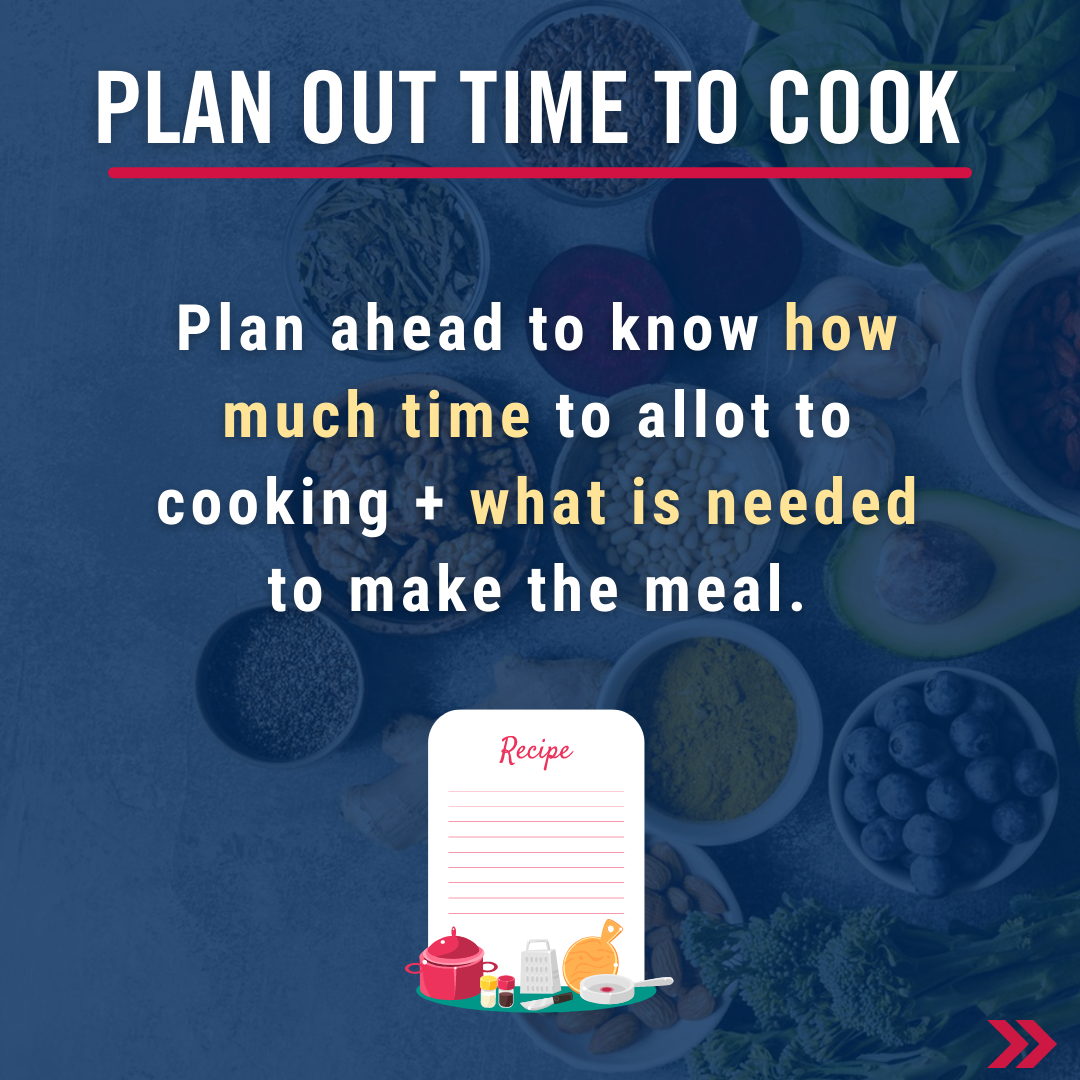 |
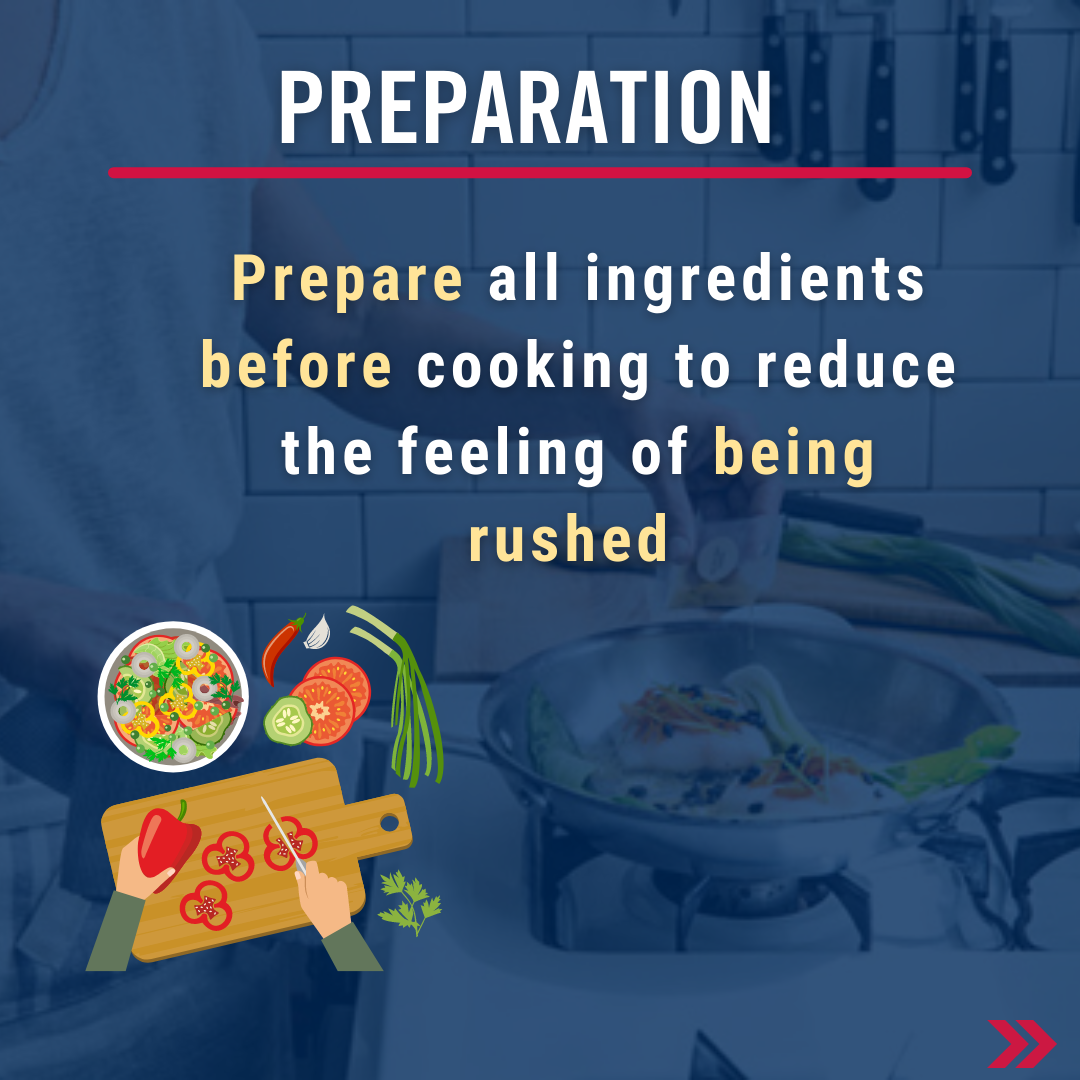 |
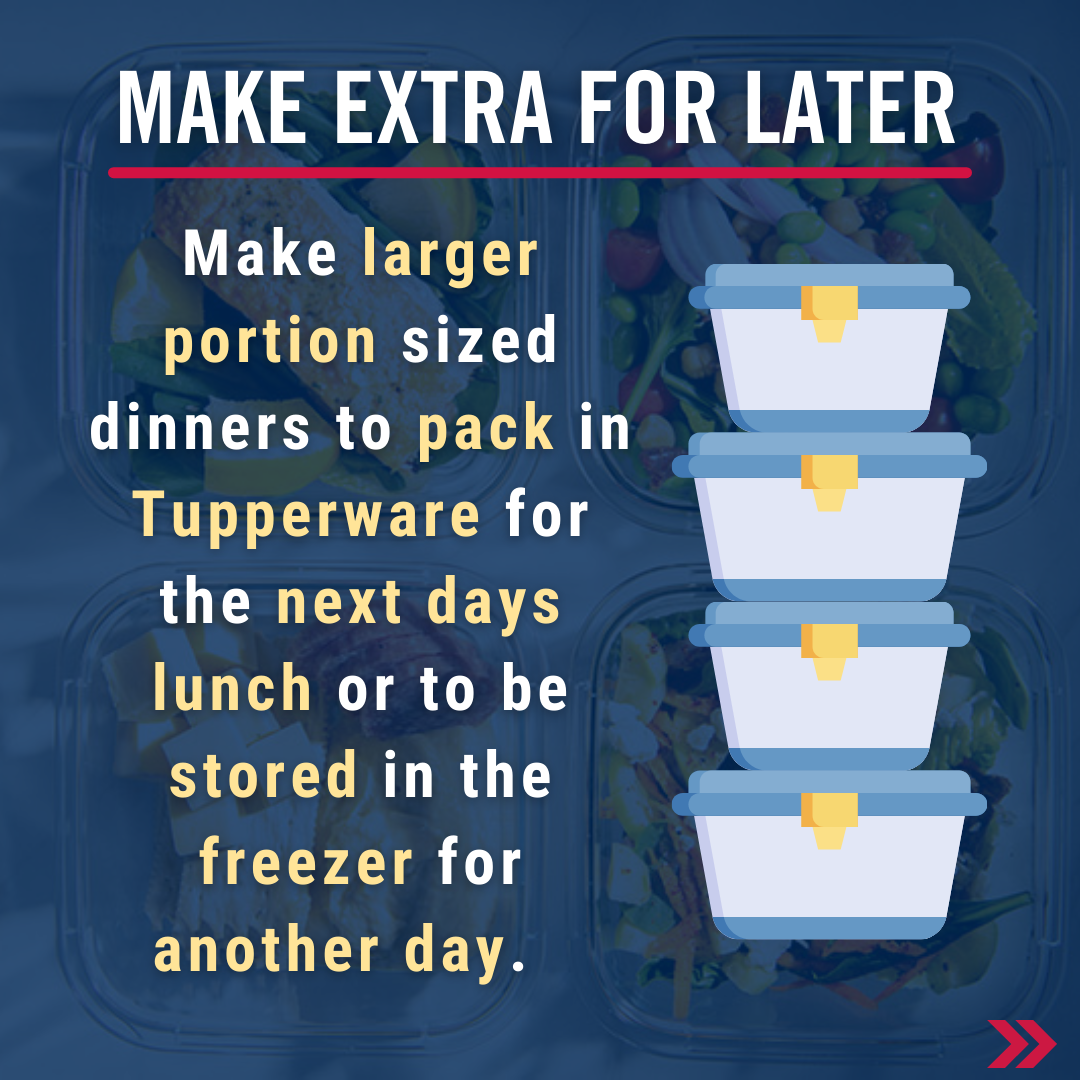 |
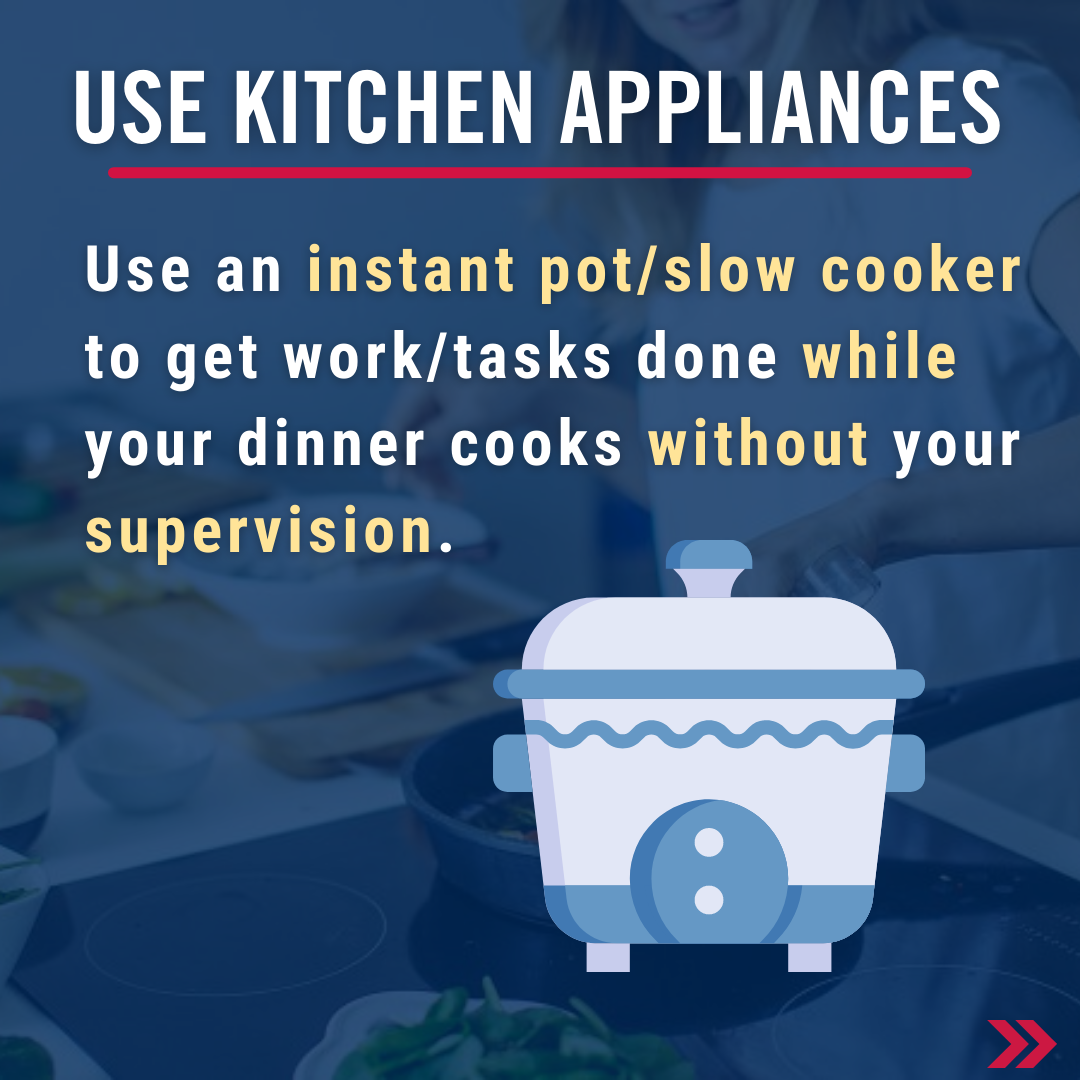 |
 |

